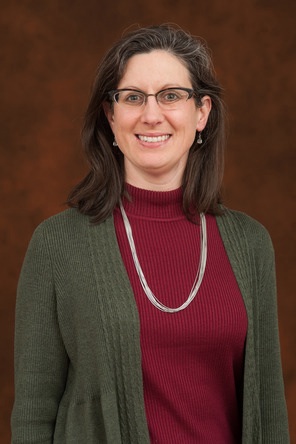
Features
Collaboration
Practice
Indiana University researcher focuses work on massage therapy integration into health care
 Aug. 8, 2014 – Research by a faculty member at the Indiana University School of Health and Rehabilitation Sciences is expected to support a movement to legitimize and integrate therapeutic massage and bodywork into the usual care for individuals.
Aug. 8, 2014 – Research by a faculty member at the Indiana University School of Health and Rehabilitation Sciences is expected to support a movement to legitimize and integrate therapeutic massage and bodywork into the usual care for individuals.
August 8, 2014 By Massage Therapy Canada staff
“Massage is likely not the first thing one thinks of when considering
higher education – at least not broader than a small component of
nursing, physical therapy or occupational therapy,” said Niki Munk, a
former massage practitioner and an assistant professor and director of
research in the school’s Department of Health Sciences, at Indiana
University-Purdue University Indianapolis.
“But massage therapy
is an emerging field with building research evidence as to its efficacy
and effectiveness for various populations and symptomology.”
The field of massage therapy has many barriers to overcome in the research world, Munk said.
“In
the United States, massage therapy is not firmly established due to the
lack of training standardization, regulation and oversight. In
addition, practice and therapist requirements and competencies are not
universal, agreed or transparent among the various practitioners and
techniques included in what can be considered the umbrella term of
therapeutic massage and bodywork.”
Nonetheless, there is growing
acceptance within the general population and medical community of
integrating massage therapy into health care and even perhaps primary
care settings, she said. That trend has expanded the need for
researchers like Munk to explore how massage can be used not only to
rehabilitate but to preserve functioning and wellness.
Munk was a
licensed massage therapist in Lexington, Ky., whose practice focused on
successful aging and older adults. A decision to learn more about the
elderly and the aging process led her to obtain a doctorate in
gerontology from the University of Kentucky in 2011.
The study of
gerontology was a natural fit with massage therapy, Munk said, because
it looks at how the functioning of older adults is affected by events
throughout their lives, starting from the prenatal stage.
“It’s
about the notion of working with people and keeping them functioning as
well and as long as possible so that older adulthood is more
meaningful.”
Munk’s plan had been to return to her massage
therapy practice after obtaining her degree and to educate other massage
therapists about older adults. Instead, Munk was bitten by the research
bug.
She discovered that research done outside of academia was
not done well, and research within academia was rarely conducted by
individuals knowledgeable of massage therapy as practiced by massage
therapists, nor informed by the therapeutic massage and bodywork field.
Often, the research focused on or included massage treatments and
interventions provided by professionals such as physical therapists,
nurses, doctors of osteopathy and other health care providers.
Massage
provided by such practitioners differs from a typical massage
therapist, and such interventions are not reflective of the treatments
provided in real-world massage practice settings, Munk said.
“What
is frustrating is that the evidence, or lack of evidence, provided by
previous studies has been inappropriately generalized to the massage
therapy field in general. As I went through the doctoral program, I
tried to identify where the research deficiencies lay in the massage
therapy literature and determine how I could fill those,” she said.
Accordingly,
Munk focused her training on research design, statistics,
practice-based research and patient-centered outcome measures in
addition to her gerontological course work.
After earning her
doctorate, Munk worked in the University of Kentucky’s Department of
Family and Community Medicine, first as a project manager/statistician
and then as the department’s research protocol manager and investigator.
She joined the School of Health and Rehabilitation Sciences in 2013 and
continues her work as a co-investigator on the University of Kentucky
research program, examining real-world massage therapy for chronic low
back pain patients in primary care.
At IUPUI, Munk’s research
program seeks to examine massage therapy’s role in functional
preservation and enhancement across the lifespan, in addition to massage
for chronic pain, integrative medicine within primary care, and the
intersection of practice-informed massage therapy and research, and
massage treatment application theory.
“I want to look at how
massage can be applied throughout life so that it just isn’t being
applied in a rehabilitative way, but in a wellness and a preventive
way,” Munk said.
Massage therapy is cost prohibitive for most
individuals because it is rarely covered by insurance, Munk said. This
leads to significant accessibility issues for most people and
contributes to the notion that massage therapy is a luxury rather than a
legitimate wellness or health-care activity. Many aspects of Munk’s
research directly consider these challenges and seek ways to overcome
various accessibility issues for massage therapy utilization and
integration.
“As the medical field becomes more patient-centered
and focused on patient outcomes, integrative practices like massage are
of more interest and in demand,” she said. “Baby boomers are the highest
utilizers of integrative practices (including massage therapy). They
are demanding these things, they are expecting these things. People are
listening to that, and you will see more and more massage therapy being
offered.”
Munk intends to lend her massage research evidence to this movement towards integrative care in Indiana and the U.S.
Print this page